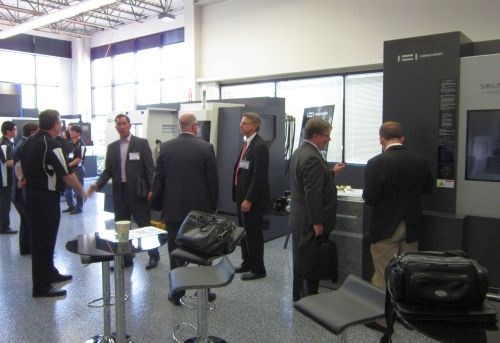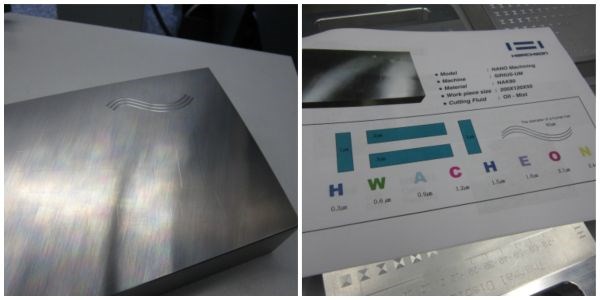Hwacheon Looks to Gain Market Share in the U.S.
If I asked you to start naming Korean machine tool builders, Hwacheon might not be among the first few you mention. However, the company is working to change that.
Share





Takumi USA
Featured Content
View More


Hwacheon Machinery America, Inc.
Featured Content
View More

Of the Korean machine tool builders you’re aware of, I’m guessing that you’re not as familiar with Hwacheon as some of the others. This conservative, family-owned business has been around for more than 60 years, and the machine tool portion of its business has had a presence in the U.S. for more than 20 years. However, it has kind of flown under the radar here in the States, especially when it comes to its milling products. But considering what I learned at a recent press event at the company’s U.S. headquarters in Vernon Hills, Illinois, I’m betting you’re going to hear a lot more about Hwacheon in the years to come.
New Hwacheon Machinery America president Michael Huggett reminded editors at the event that Hwacheon was the first Korean company to manufacture an NC lathe (in 1977) and the first to produce a CNC milling machine (in 1983). Also, it ranks in the top three Korean machine tool builders in terms of domestic sales in Korea. Approximately 90 percent of the machines sold in the U.S. have been turning centers, so the company is looking to gain market share in milling equipment especially in the die/mold industry that requires high-accuracy machining and quality surface finishes. Its 20,000-rpm Sirius UM, one of three display machines at its Vernon Hills location, is geared toward that work (see photo and caption below).

This machining demonstration shows the sub-micron machining capabilities of Hwacheon’s Sirius machine. Look closely at the block for letters of various small sizes spelling the company name.
The company prides itself in is “foundry to final assembly” vertical integration. Pretty much the only components it doesn’t make are ballscrews and CNCs. It even pours its own castings. In terms of machine design, the company focuses on the fundamentals of cast iron structures, gear box spindles and boxway design. Also, nearly every machine features hand-scraped ways.
Another advantage it points to is its machining software—much of it offered standard with machines—that enables the equipment to compensate for machining’s inherent physical and thermal challenges. Some of these I highlighted in this past article, including control of spindle displacement, frame displacement and contouring capability as well as tool load detection. Tool load detection capability was demonstrated during the press event on a Vesta 1050B model VMC, which was milling SM45 steel at a d.o.c. of 7 mm and feed rate of 250 mm/min. This machine also demonstrated the company’s Optima cutting feed optimization (an adaptive control method to regulate the feed rate in real time to sustain a consistent cutting load) and Vortex (Delcam) pocketing routines.
The company now has a network of 25 dealers in the United States, all specializing in Hwacheon products. Its pre-sales services include technical advice, time studies, trial processing, machine configuration and automation solutions. It also stocks approximately $800,000 in available spare parts and has five Hwacheon service engineers and 115 dealer service engineers in the U.S.











.png;maxWidth=150)






















.jpg;maxWidth=300;quality=90)


